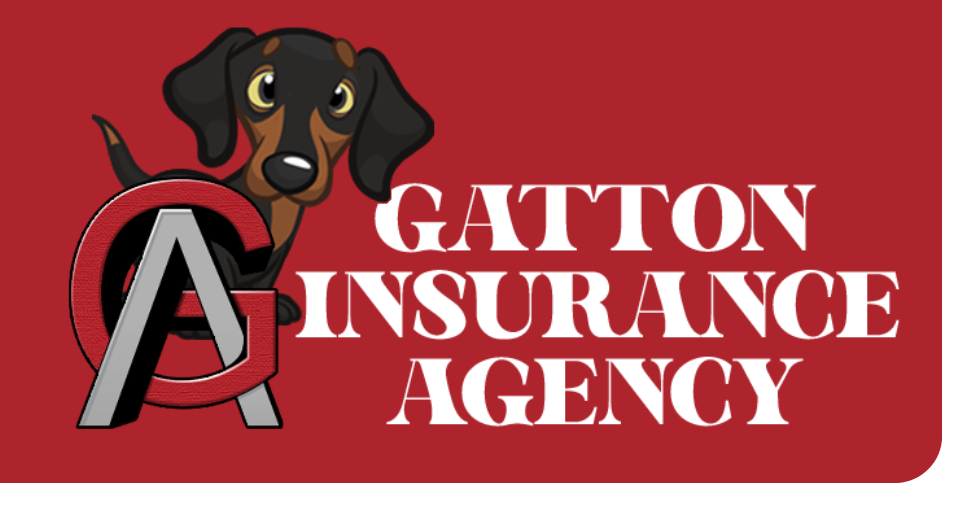Understanding RV Insurance
Recreational vehicles (RVs) have become an increasingly popular mode of travel, offering the flexibility to explore the beautiful landscapes of Indiana and beyond. However, with this freedom comes the responsibility of ensuring proper insurance coverage. RV insurance serves as a safeguard for owners, protecting against potential financial losses that may arise from accidents, theft, or damage.
The primary purpose of RV insurance is to provide financial assistance in the event of unforeseen circumstances. Much like traditional auto insurance, RV insurance encompasses various coverage options designed to meet the unique needs of RV owners in Indiana. Key coverage types include liability, collision, comprehensive, and personal property coverage.
Liability coverage is crucial, as it protects the policyholder against claims resulting from bodily injury or property damage inflicted on others during an accident involving their RV. This type of insurance is mandatory in Indiana and serves as the foundation of any solid RV insurance policy.
Collision coverage is another essential component, offering protection for damages to your RV resulting from a collision with another vehicle or object. For RV owners investing in high-value units, having this coverage can provide peace of mind and financial security.
Comprehensive coverage extends protection beyond just collisions, guarding against non-collision-related incidents such as theft, vandalism, or natural disasters. This type of coverage is particularly relevant for those who wish to fully protect their investment in an RV, especially given the varying weather conditions experienced in Indiana.
Lastly, personal property coverage is vital for safeguarding personal belongings stored within the RV, including electronics, clothing, and gear. Understanding and selecting the appropriate insurance coverage is essential for any RV owner in Indiana, as it not only ensures compliance with state regulations but also enhances the overall experience of traveling with peace of mind.
Legal Requirements for RV Insurance in Indiana
In Indiana, the legal requirements for insuring a recreational vehicle (RV) are predominantly designed to ensure public safety and protect financial interests. All RV owners must comply with state laws regarding minimum insurance coverage, which includes liability insurance. This requirement applies to any motor vehicle on Indiana roads, including motorhomes and trailers that are registered as vehicles.
The Indiana state law mandates that RV owners must carry a minimum liability insurance coverage of $25,000 for bodily injury per person, $50,000 for total bodily injury per accident, and $10,000 for property damage. This ensures that, in the event of an accident, sufficient funds are available to cover medical expenses and property damage incurred by others. Additionally, while liability coverage is a statutory requirement, RV owners are encouraged to consider higher limits and additional coverage options, such as comprehensive and collision coverage, to protect their own investment.
While obtaining RV insurance, it is imperative to provide necessary documentation to the Indiana Bureau of Motor Vehicles (BMV). This includes proof of insurance that details the policy’s coverage limits and expiration date. RV owners should also ensure they obtain their insurance from a reputable provider such as The Gatton Agency, which specializes in various types of insurance products tailored to the needs of Indiana residents.
Moreover, the BMV requires that RV owners maintain consistent insurance coverage and report any changes in their policy to avoid penalties. Failure to comply with these regulations may result in fines and even suspension of your vehicle registration. It is advisable for RV owners to regularly review their insurance policies to meet both legal requirements and personal needs, ensuring peace of mind on their journeys across Indiana.
Factors Affecting RV Insurance Premiums
When purchasing RV insurance in Indiana, various factors can significantly influence the premiums one might encounter. Understanding these essential elements can aid potential policyholders in finding coverage that aligns with their needs and budget. The type of RV is one of the most decisive factors; motorhomes typically incur higher premiums than travel trailers or pop-up campers due to their complex components and added capabilities. Subsequently, the age of the RV also plays a critical role in determining the cost of insurance. Newer models may be more expensive to insure, primarily due to their higher market value and advanced features, while older RVs might benefit from lower premiums.
Driving history constitutes another vital element, as insurers evaluate an individual’s record to assess risk. A clean driving history, devoid of accidents or significant violations, tends to translate into lower premiums. Conversely, a history marked by accidents, DUI charges, or frequent claims may drive the costs higher. Additionally, the frequency of RV usage can impact insurance premiums. Those who use their RVs for full-time living or frequent travels are often subject to different rates than those who only take infrequent weekend trips.
How the RV is parked also affects the insurance premium. Vehicles kept in a secure, enclosed area or a monitored facility are generally viewed as lower-risk options, leading to reduced insurance costs. Lastly, an individual’s credit history is increasingly considered by many insurers in Indiana. A strong credit score may pave the way for lower premiums, while a poor credit rating could result in higher costs. By understanding these factors, RV owners can make informed decisions when selecting insurance through reputable agencies like The Gatton Agency, ensuring tailored and effective coverage.
Types of RV Insurance Policies Available
When it comes to securing your recreational vehicle in Indiana, it’s essential to understand the various insurance policies available to meet your specific needs. Among the most common options are full-timer policies, seasonal policies, and recreational policies, each designed for distinct lifestyles and usage patterns of RV owners.
Full-timer policies are ideal for those who live in their RVs year-round. This type of insurance provides comprehensive coverage akin to a traditional homeowners’ policy and includes liability protection, personal property coverage, and additional living expenses if the RV becomes uninhabitable due to damage. While this policy often offers extensive benefits, it can also be more costly compared to other types of coverage.
On the other hand, seasonal policies are tailored for RV owners who use their vehicles primarily during specific months of the year, such as summer vacations or weekend getaways. These are typically less expensive than full-timer policies, as they provide coverage only during the designated active months. It’s important to note, however, that should an incident occur outside of this period, the RV may not be covered, leaving owners vulnerable to potential financial loss.
Recreational policies serve as a flexible middle ground for those who use their RVs periodically for weekend trips or family vacations. This type of insurance often includes liability and physical damage coverage and can be customized based on how often the RV is used. While these policies can provide adequate protection for occasional usage, they may lack some of the comprehensive benefits offered by full-timer options.
Each of these insurance types has its benefits and drawbacks. It is essential for RV owners in Indiana to evaluate their needs carefully and consult with providers like The Gatton Agency to determine which policy aligns with their lifestyle and budget. Properly understanding these options can greatly enhance protection on the road.
Additional Coverage Options to Consider
When it comes to securing RV insurance in Indiana, it is crucial to recognize that standard policies may not encompass all of the diverse scenarios that RV owners may encounter on the road. This understanding paves the way for considering additional coverage options which can significantly enhance the level of protection afforded during travels. One such option is roadside assistance. This coverage provides RV owners with the peace of mind that help is just a phone call away should they experience a breakdown or other roadside emergency. From towing services to fuel delivery, having this coverage can relieve much of the inherent stress associated with long-distance travel.
Another valuable addition to an RV insurance policy is vacation liability coverage. This option offers financial protection in situations where injuries or property damage occur to third parties while you are using your RV. Given that RV use often entails stays at campgrounds or recreational parks, this coverage effectively safeguards against legal claims that might arise from accidents during these outings. By selecting vacation liability, RV owners can enjoy their travels without undue worry about potential liabilities.
Additionally, personal effects coverage is another layer that RV owners may find beneficial. This coverage protects the belongings inside the RV, such as electronics, clothing, and camping gear, from theft or damage. Considering the investment many RV owners make in outfitting their vehicles, securing personal effects coverage ensures that financial losses due to unforeseen circumstances are minimized. By considering these additional coverage options, RV owners in Indiana can tailor their insurance policies through The Gatton Agency to suit their specific needs, ultimately providing comprehensive protection that allows for enjoyable and worry-free travel.
How to Choose the Right RV Insurance Provider
Selecting the appropriate RV insurance provider in Indiana requires careful consideration of several critical factors. A fundamental aspect of this process is assessing the reputation of the insurance company. It is advisable to investigate companies with a strong track record in the RV insurance sector. Look for agencies that specialize in recreational vehicles, such as The Gatton Agency, which often have tailored policies and a better understanding of the unique needs associated with insuring RVs.
Equally important is the quality of customer service offered by the provider. RV owners should seek insurers that are known for responsive support and assistance, particularly in emergencies or when filing claims. Good customer service can ultimately save time and reduce stress during challenging times, making it an essential component of your decision-making process.
Coverage options are another critical factor to weigh. Different RV insurance providers offer various levels of protection, ranging from basic liability to comprehensive coverage that includes damage to personal possessions. Ensure that the policy meets your specific needs, covering the type of RV you own and the extent of travel you anticipate. Additionally, inquire about available discounts, as many companies offer incentives for safe driving, bundling policies, or even being a member of an RV association.
Finally, reviews from other RV owners in Indiana can provide valuable insights into the experiences of fellow policyholders. Websites that aggregate customer reviews can shed light on the insurer’s reliability and responsiveness. Engaging with local RV communities, whether through online forums or local meetups, can also enhance your understanding of which providers others have had positive interactions with. Conducting thorough research will equip you with the information necessary to make informed decisions regarding your RV insurance provider.
Understanding the Claims Process
When it comes to RV insurance in Indiana, understanding the claims process is crucial for a smooth experience after an accident or damage to your vehicle. The first step is to ensure the safety of all individuals involved in the incident. Once immediate concerns are addressed, you can proceed with documenting the scene. This includes taking photographs of the damage, gathering contact information from witnesses, and obtaining police reports if applicable. This documentation will serve as critical evidence when filing your claim with your insurer.
Next, it is advisable to contact your insurance provider, such as The Gatton Agency, as soon as possible. Each insurance company has specific protocols for initiating claims, so be prepared to provide details about the incident, including the time, date, location, and nature of the damages. Having your policy number readily available can expedite the process. After reporting the incident, your insurer will likely assign an adjuster who will assess the damage and guide you through the claims process.
To maximize your chances of a smooth claims experience, maintain detailed records of all communication with your insurer. This includes dates, times, the name of the representatives you spoke with, and any information provided. Additionally, it’s important to keep track of any expenses incurred as a result of the incident, as these may be reimbursable under your RV insurance policy.
Finally, review your policy coverage thoroughly to understand what is included and what may not be covered. This knowledge can help set realistic expectations and allow you to adjust your claims approach effectively. Understanding how claims work will empower you as an RV owner in Indiana, ensuring that you are prepared should the need arise.
Tips for Lowering Your RV Insurance Costs
Owning an RV in Indiana can be a rewarding experience, but it also comes with its share of financial responsibilities, particularly concerning insurance. Fortunately, there are several practical strategies RV owners can employ to reduce their insurance costs without sacrificing essential coverage. One effective approach is to consider bundling your insurance policies. Many insurance companies, including those represented by The Gatton Agency, offer discounts for clients who combine their RV insurance with other policies, such as home or auto insurance. This not only simplifies payment processes but may also lead to considerable savings.
Maintaining a clean driving record is another critical factor in determining your insurance premiums. Insurance providers typically reward safe drivers with lower rates. By following traffic laws, avoiding accidents, and refraining from reckless driving, you can demonstrate your reliability as a driver. Implementing safeguards like maintaining comprehensive maintenance on your RV can also prevent accidents and claims, further assisting in reducing your premiums.
Additionally, it is crucial to take advantage of various discounts offered by insurance providers. Many companies provide reductions for RV owners who belong to certain organizations or associations, or for those who have taken RV safety courses. Completing courses that focus on safe driving techniques for RVs not only enhances your knowledge and skills behind the wheel but often qualifies you for reduced rates from insurance companies. Check with The Gatton Agency to explore qualifications for possible discounts you might be eligible for.
By combining these strategies and remaining proactive about your RV insurance needs, you can significantly lower your costs while ensuring that you maintain adequate coverage for your Indiana adventures.
Staying Informed About RV Insurance
As an RV owner in Indiana, remaining informed about RV insurance is crucial to ensuring you have the right coverage for your needs. The landscape of insurance can frequently change, with new laws, regulations, and offerings emerging over time. Being proactive in understanding these developments can significantly impact how safely and effectively you travel.
One of the primary responsibilities of an RV owner is to stay updated on the latest insurance policies and coverage options available through various providers, including reputable agencies such as The Gatton Agency. Changes in state laws can influence what is required by law and what may be beneficial to include for added protection. For instance, alterations in liability limits or changes in minimum coverage requirements can affect your existing policy.
Additionally, it is essential to routinely review your insurance policy to ensure that it reflects any modifications in your circumstances, such as the addition of new features to your RV, changes in usage patterns, or even variations in your travel plans. Market trends may also introduce new types of coverage that can enhance your protection or lower your premiums. By engaging with insurance professionals or consulting with The Gatton Agency, you can glean insights into these emerging trends and tailor your policy accordingly.
Furthermore, maintaining awareness of seasonal factors or special regional events may necessitate temporary adjustments to your coverage. By regularly monitoring updates and remaining in communication with your insurance provider, you can ensure that any potential gaps in coverage are promptly addressed. In conclusion, informed RV ownership in Indiana not only safeguards your investment but also enriches your overall travel experience. This vigilance ultimately leads to a more secure journey on the open road.






